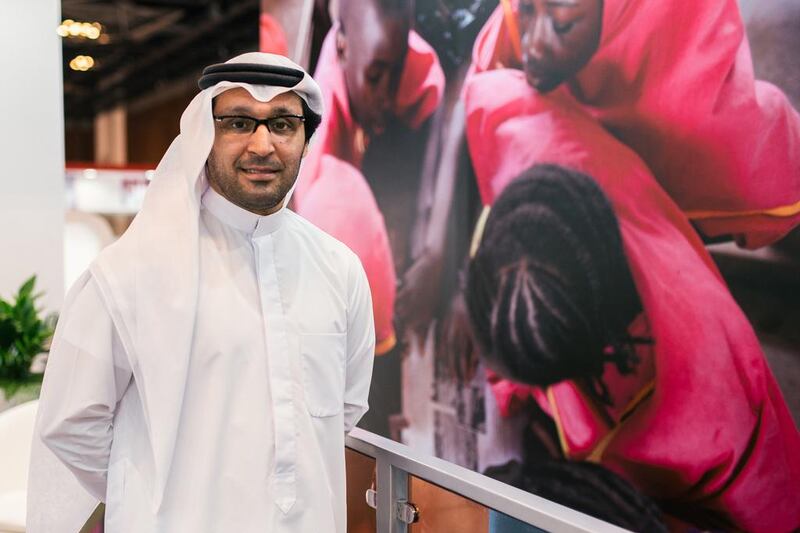DUBAI // Providing education to children in the aftermath of natural and man-made disasters will be an important focus for Dubai Cares in the coming years.
Millions of children around the world are left without access to schools and teachers following an emergency.
Tariq Al Gurg, chief executive of Dubai Cares, said the world was facing a race against time to make sure education reached those in crisis-hit countries around the world.
“Only 1 per cent of the money that goes for aid in disaster-hit areas goes towards the provision of education,” he said. “And when a disaster hits, the amount that goes towards education is peanuts. So that is something that needs to be addressed by everyone around the world.”
Mr Al Gurg was speaking on the sidelines of the Dubai International Humanitarian Aid and Development Conference and Exhibition on Monday.
Dubai Cares is working with the UN secretary general’s Education First initiative to look at ways of attracting donors to invest in education in emergencies.
Education is often neglected because it is difficult to measure its impact, expensive and hard to scale-up.
Mobisher Rabbani, a diplomatic consultant and philanthropist in Dubai, said it was crucial to bring in education once those affected by a disaster were safe, sheltered and had enough food.
“Education is very important once children are safe after a disaster and it should be number two in the list of priorities,” he said.
“Children must be rehabilitated back into education as soon as possible because if they don’t then they may fall out of the system and their futures will be lost.
“It is very difficult to get children back into an education system once they leave it especially after a disaster because the schools may be destroyed. So it’s imperative that they receive some kind of teaching in the aid camps.”
During the UN General Assembly in September last year, Dubai Cares joined UN representatives and other agencies in New York to discuss the Sustainable Development Goals for the next 15 years.
These goals seek to develop innovative solutions to provide primary and lower secondary education to children after a natural disaster or war.
This year Dubai Cares will focus on these goals in East Africa, Asia, the Pacific region and Latin America.
It has contributed Dh5 million to support the UAE Compassion drive by the President Sheikh Khalifa to help Syrian refugees.
Dh4.9 million was used to launch a bilingual education programme in Senegal to benefit 10,500 children, 300 teachers and head teachers and 24 education inspectors.
Last year Dubai Cares also contributed Dh11 million to the world’s largest school-based deworming programme in India.
In addition, 26 schools were supported by Dubai Cares donors as part of its “Adopt a School” initiative.
Last year, more than 3,500 volunteers in the UAE packed 50,000 school kits for children in Gaza over two days as part of the “Rebuild Palestine” project.
nhanif@thenational.ae






